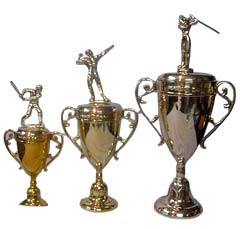
I thought a school reunion could be fun – if I actually recognised anyone after 41 years…
When the invite to the reunion arrived, my first reaction was panic. “Am I really that old? Am I sixty already?” A quick calculation followed. “No, only fifty-seven. Phew! Sixty is miles away.” I slipped back into denial.
That I didn’t trash the e-invite was down to one line: “Those of you who are blissfully happy with your lives can buy the rest of us a drink”.
“Still”, I thought, flinging it in the e-folder I tuck everything I don’t want to deal with, “Why trek back down to Yercaud? I’m a busy man. Who’d turn up, anyway? What would we have to say to each other after 41 years?” Worst of all, would I remember anybody?
The invite would have stayed there and the date slipped by, had it not been for another e- invite. A few former schoolmates living abroad were meeting up here in my hometown for a holiday. Would I join them? This was easier to commit to. And it was a litmus test.
I recognised one out of five and that was only because I was expecting to see him and he hadn’t changed much. The others I had to look at for a whole minute before familiar features began to emerge from now unfamiliar faces. Hair made a huge difference. One guy had gone tres bald, leaving the rest of us in awe. But as the evening advanced, it became clear that he, like us, was the same person he’d always been.
The 41-year gap evaporated. We laughed at memories that might otherwise have been lost forever. We had, we realised, shared so much (far beyond 24-hours-a-day, 7-days-a-week for 7 years).
We had grown up together. How had we gone on to never see each other again? And not even give it a thought. Going home that night, I knew I would be going to the reunion.
A few of us met in a pub beforehand. The roars as we recognised each other had the regulars tut-tutting about not being able to hear the match. We didn’t care. Some bright spark had brought along copies of our last group photo. I looked at it and cringed. Was long hair really a fashion back then? God, how innocent I looked. How boring.
As more and more people arrived I realised how little I’d remembered. I kept cross referencing the men and women in front of me with the boys and girls in the photographs and asking “What’s your name again?”
Those I recalled easiest had been the funny ones. Some were “the image of themselves”, others had changed beyond recognition.
Roughly 23 out of 29 in my own class turned up, three of whom had returned from abroad for the event. The thing that struck me was how down-to-earth every one was. But then that shouldn’t have been a surprise. Ours was not a pretentious school – but it was good. It was run by a congregation of teaching brothers the Brothers of St. Gabriel, only 3 of which were present in school from back when we were their wards.
It had not produced blowy people who felt superior because of the school they attended. And yet there was a strong camaraderie between us.
As the days went by we caught up on each other’s lives. Many had had difficult times. Some had stayed single soon after leaving school. Others struggled with family problems. More had to deal with sickness and ill-health.
The majority had married and were busy raising families. Some had died. Something I believe in greatly was reinforced – people have such incredible strength.
A word I hadn’t used since school came rushing back to describe my former classmates – “sound”. That included those I’d never hung out with and might even have been a little afraid of. That night I realised that these had not been people to fear but to admire – unafraid as they were to let their personalities shine through in their haircuts and adaptation of uniform.
Which brings me to what people thought of me. In a word, reticent.
It was probably true. I had had one or two good friends. We had commonalties like being in the school band. And while we never stopped talking to each other, obviously we didn’t mix enough. One close friend had passed away and wasn’t at the reunion and I made up for all that non-mingling.
The last stragglers left a couple of days later. We hugged and swapped contact details. Someone joked that we should meet again in ten years when we’re heading for seventy. We were too shocked to laugh.
That was Sunday. A week later, I am back home sitting here writing my blogspot. I nearly cried when a gang of my newest buddies land and invite me out to dinner. It is a special moment. And to think that I had almost missed out on it completely.


